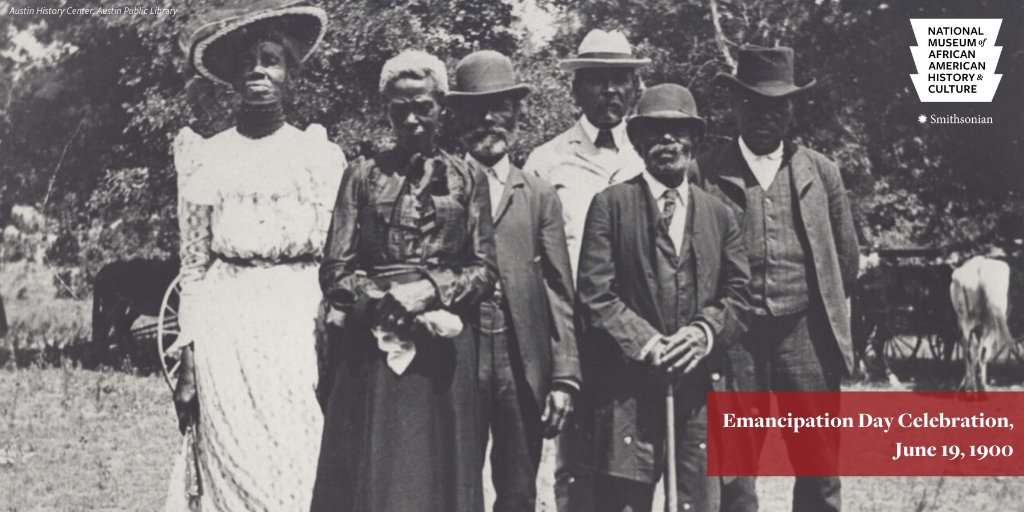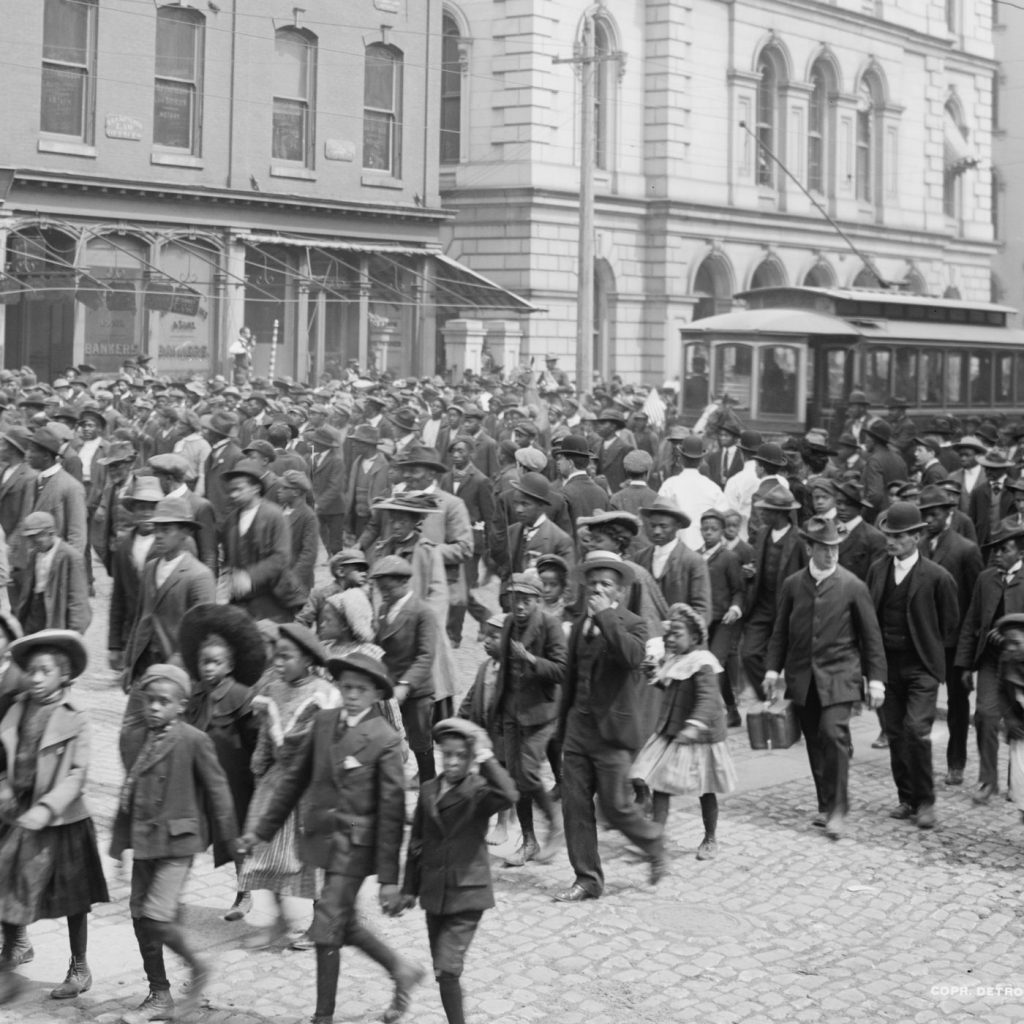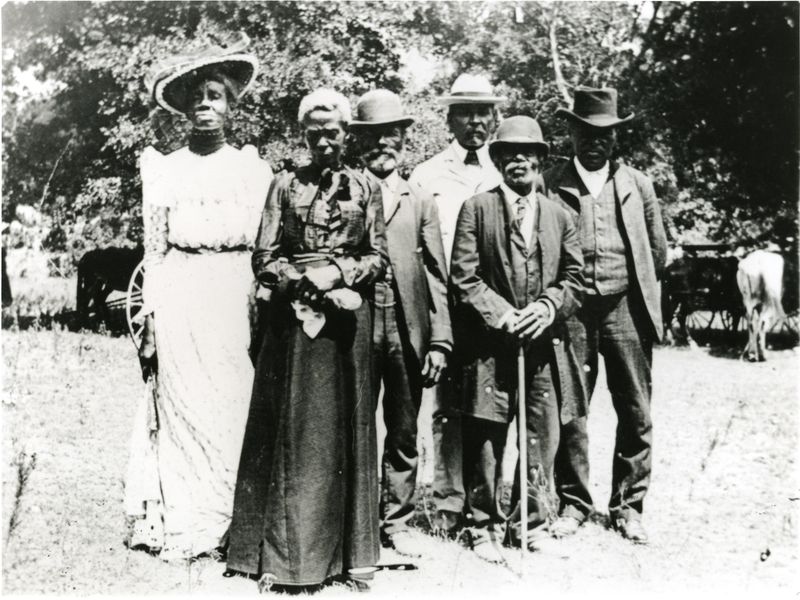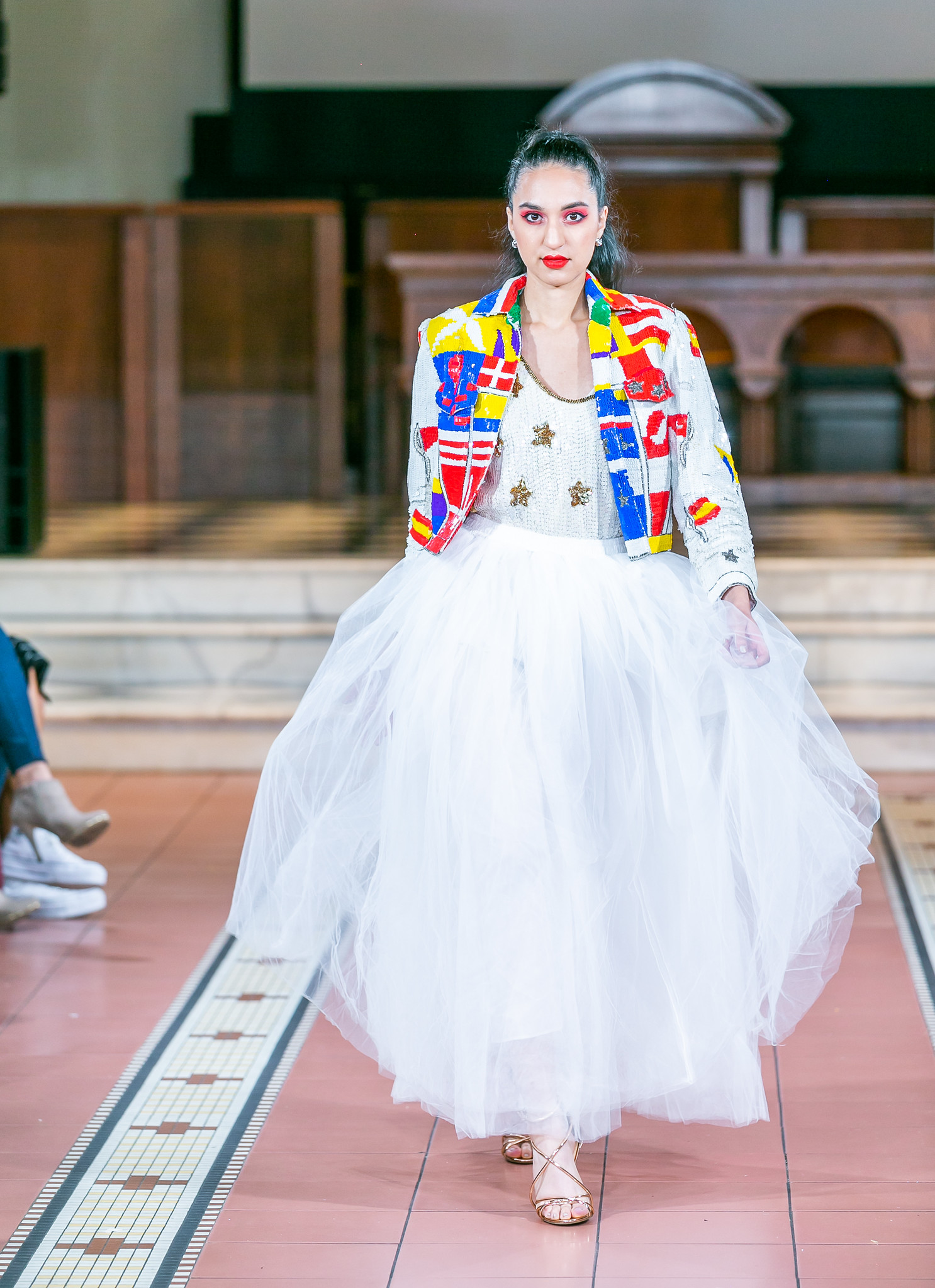
In 1865, enslaved African Americans were notified of their freedom by Union troops in Galveston Bay, TX—two years after the Emancipation Proclamation was issued. Known as Juneteenth this day is widely celebrated as the end of chattel slavery in the U.S. Though it has long been celebrated among the African American community, it is a history that has been marginalized & still remains largely unknown to the wider public. The legacy of Juneteenth shows the value of deep hope & urgent organizing in uncertain times. Although the Emancipation Proclamation was made effective in 1863, it could not be implemented in places still under Confederate control, some enslaved people would not be free until much later. For more than 250,000 African Americans, June 19, 1865, signaled the final day of their enslavement. Two and a half years after the Emancipation Proclamation took effect on January 1, 1863, Texas had yet to officially recognize the President’s executive order


#Juneteenth celebrations included prayer services, inspirational speeches, readings of the #EmancipationProclamation, storytelling, food, games & dances. Black Texans took the holiday with them as they traveled—and what started as a local celebration became a national one. (7/23) pic.twitter.com/hn2UsxEM1o
— Meyer Memorial Trust (@meyermt) June 17, 2020
But the day of June 19, 1865, also known as #FreedomDay and #JubileeDay, became a date memorialized by formerly enslaved Black Americans to celebrate resilience in the face of brutal tyranny. (6/23) https://t.co/guqAVJvVIj
— Meyer Memorial Trust (@meyermt) June 17, 2020
Juneteenth has never been a celebration of victory, or an acceptance of the way things are. It's a celebration of progress. It's an affirmation that despite the most painful parts of our history, change is possible––and there is still so much work to do.https://t.co/5XCRdnk3iR
— Barack Obama (@BarackObama) June 19, 2020
Juneteenth is more than a celebration of emancipation. It is a call to continued action for racial justice. We must answer it. https://t.co/lJIPXxeI07 pic.twitter.com/EhEgT8ZOkO
— Hillary Clinton (@HillaryClinton) June 19, 2020
Harriet Tubman
Mother Freedom#Juneteenth pic.twitter.com/iI1DdcxJno— Be A King (@BerniceKing) June 19, 2020
This was always more than just a game. #BlackLivesMatter #Juneteenth pic.twitter.com/jtwqx9sUU7
— Maria Taylor (@MariaTaylor) June 19, 2020
On the 155th Anniversary of #Juneteenth, we remember how far we've come, but realize how much more work there is to do. pic.twitter.com/x6bG2hyhEh
— Beyond The Bleachers (@BeyondBleachers) June 19, 2020
Origins of #Juneteenth can be traced to the front porch of this Texas plantation house, where a slaveowner told his 150 enslaved workers that they were free on June 19, 1865. MORE: https://t.co/eKThJSmNYJ #otd pic.twitter.com/MVDPXmrLfI
— Library of Congress (@librarycongress) June 19, 2020
#Juneteenth stands as a beautiful celebration of freedom for African Americans. 155 years after the start of this proud tradition, it carries even greater weight, as people nationwide unite to demand justice for Black Americans killed by racial injustice & police brutality. pic.twitter.com/9APhweKoDi
— Nancy Pelosi (@SpeakerPelosi) June 19, 2020




